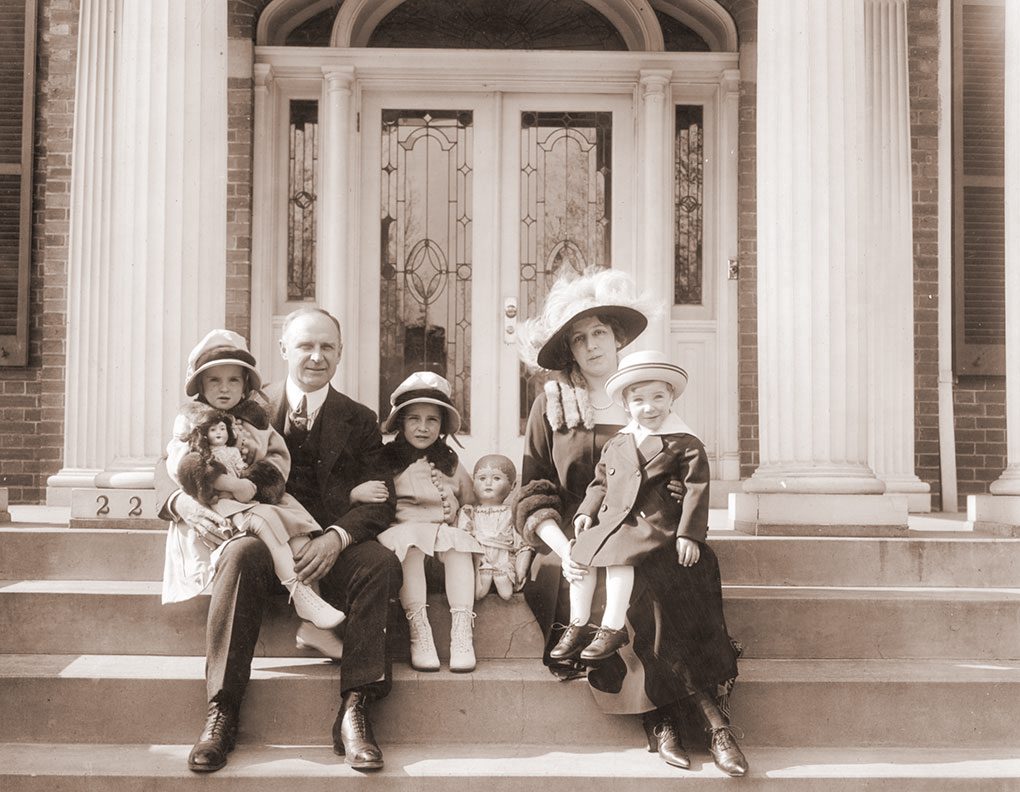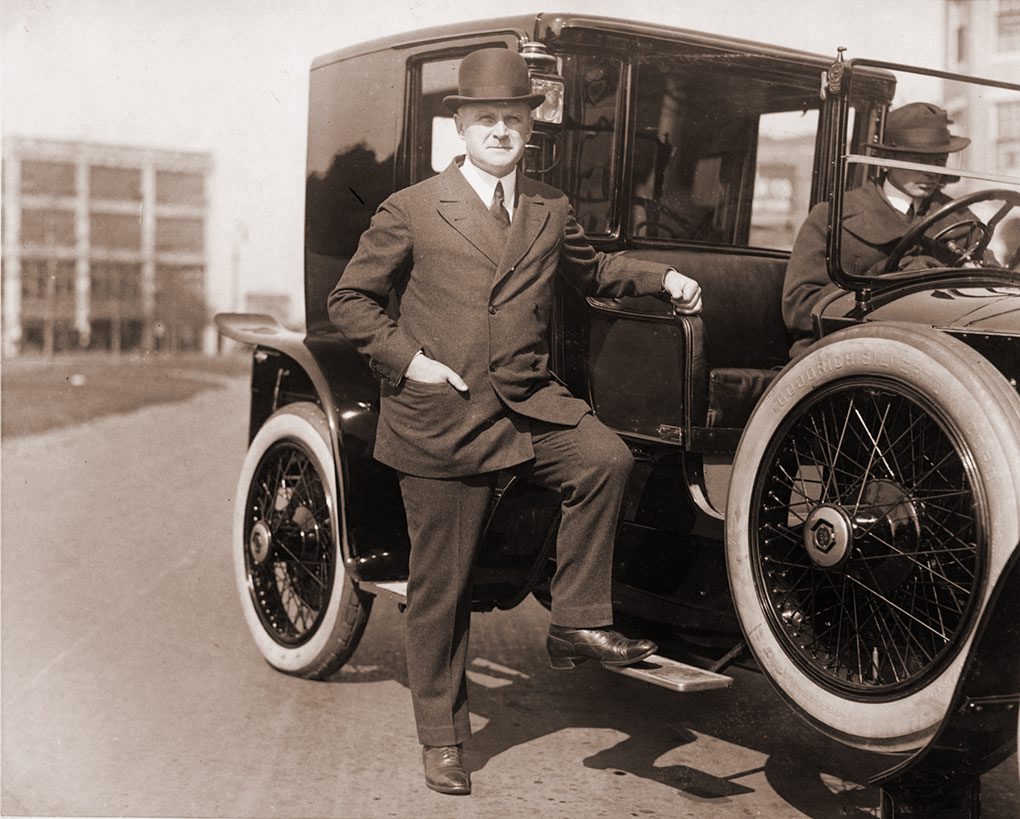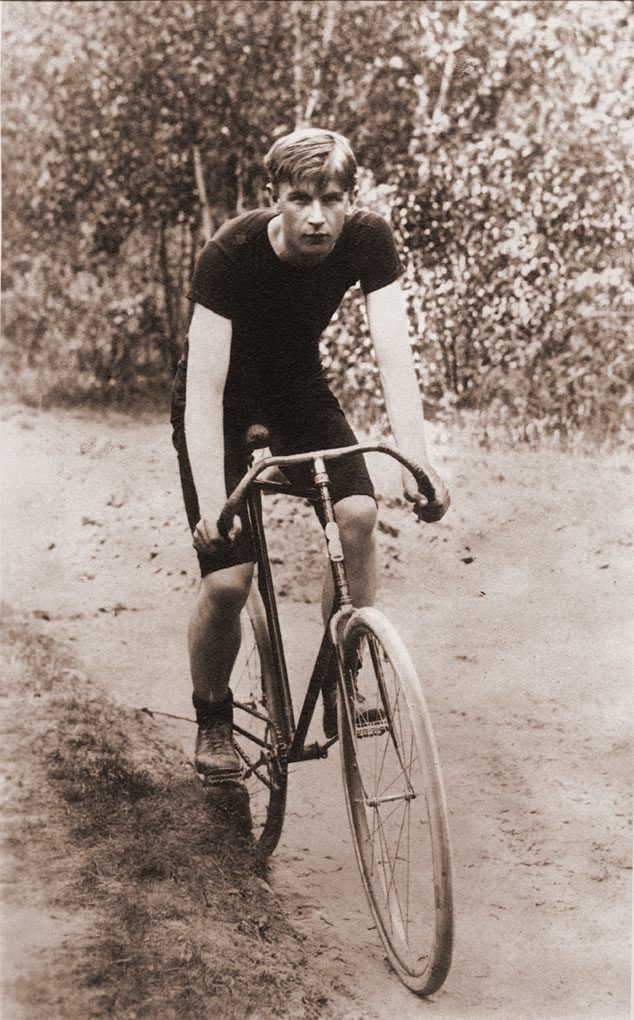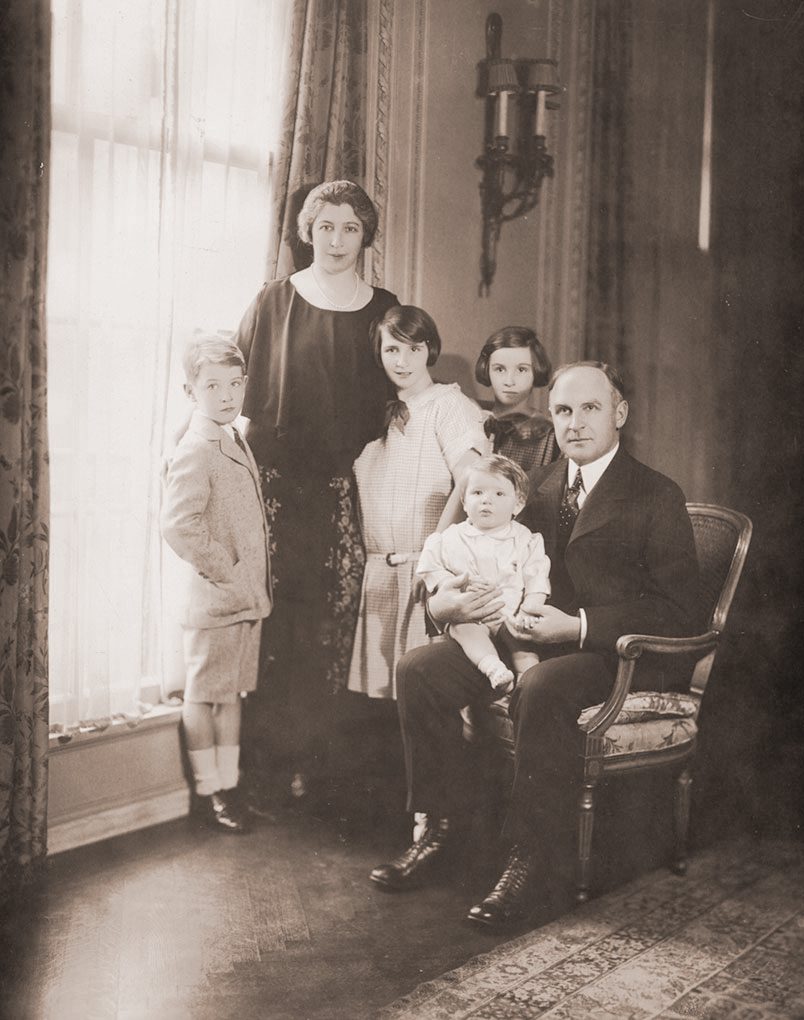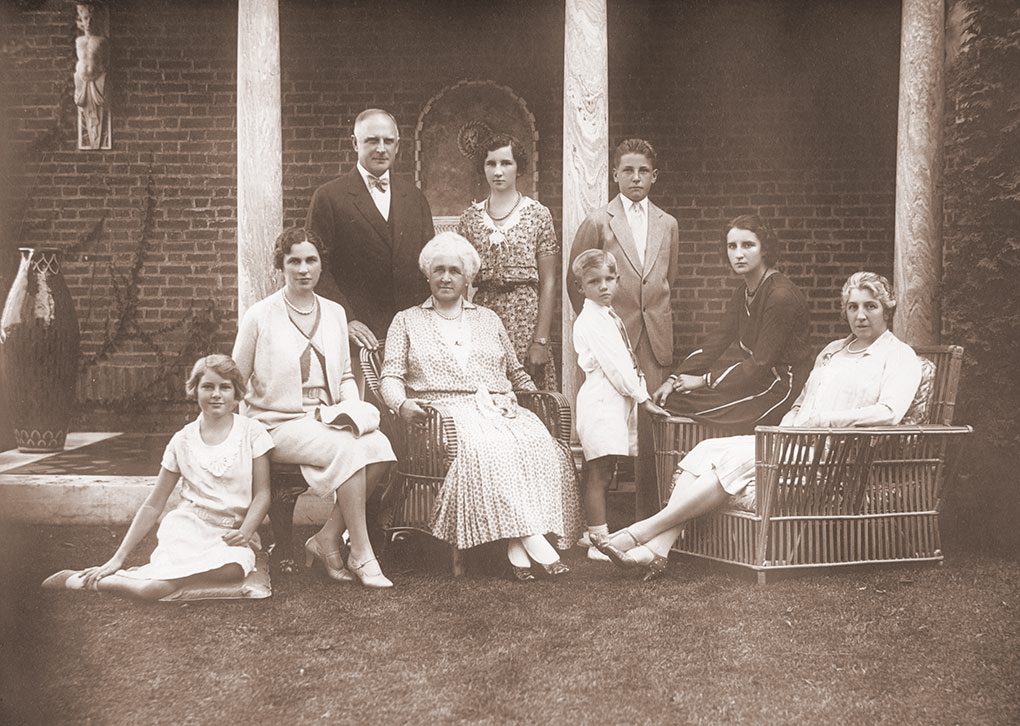Mr. and Mrs. Alvan T. Fuller
Alvan T. Fuller was a self-made businessman, politician, and philanthropist from Boston, Massachusetts whose legacy lives on through the Fuller Gardens and the Fuller Foundation. Fuller built the Fuller Gardens at their summer estate in North Hampton, New Hampshire to honor his wife, Viola, in the late 1920’s. After his death in 1958, Fuller Gardens was opened to the public.
Born the son of Flora Arabella Tufts and Alvan Bond Fuller in 1878, young Alvan grew up in Malden with his parents and sister. Fuller attended the public schools in Malden. He was known for his athleticism and his love of riding bicycles. His father was a Civil War veteran and a printer by trade who worked at the Boston Globe. Young Alvan had to leave school at an early age when his father died. His first job was at age fifteen at the Boston Rubber Company (Converse) in Malden, in the shipping department, where he moved crates from 7:00 in the morning until to 6:00 at night for $7.50 per week. He continued studying at home and took courses from Burdett Business College. During this time, he won numerous bicycle racing competitions, becoming New England champion at age 16. In the evenings Alvan repaired and sold bicycles from their barn. When he was eighteen, Alvan built a small shop on the family plot on Cross Street. He tacked out a sign that read “Alvan T. Fuller, Bicycles and Tires, We specialize in Repairs.” Success followed; in that first year Alvan repaired and sold over 360 bicycles.
Success Built on Bicycles and Automobiles
When he was 21, Alvan T. Fuller traveled to Europe to look at the automobile he had heard so much about. He returned home with the first two cars to enter the Port of Boston — two French “DeDion Bouton Voiterettes.” He wrote to his family before returning home: “I think the Boston store can make a go. I have spent a lot of money, but what I have in return no one can take away from me. I am feeling fine as silk.”
He sold the cars for a profit and in 1900 opened a second shop in Boston where he sold bicyles as well as automobiles. By 1920 he had become the most successful auto dealer in the country, selling both Packards and Cadillacs. He originated the Washington’s Birthday sale and other marketing approaches which continue today. He also originated the idea of paying for a car over time.
A Public Life
Theodore Roosevelt, whom Fuller greatly admired, was the first to urge Fuller to consider running for public office. In 1914 Fuller was elected to the Massachusetts House of Representatives and served two terms. He then ran for Congress as a Republican and served two terms. In 1921 Fuller ran for Lieutenant Governor and won. Then in a bruising political battle, he defeated Boston Mayor James Curley in a race for the Governor of Massachusetts. Alvan T. Fuller was re-elected in 1926. As a politician he is remembered as the sitting Governor who refused to pardon Italian immigrants Nicola Sacco and Bartolomeo Vanzetti, anarchists who had been convicted of murdering a payroll guard during a robbery. Fuller did so only after receiving the review recommendation that included a Judge, a President of Harvard and a President of the M.I.T.
Fuller never cashed a paycheck as public servant. He kept a keen interest in politics throughout his life, showing his independent party line by voicing publicly his “mounting confidence in the Franklin D. Roosevelt” administration in 1933.
In 1910, Fuller married Viola Davenport from Medford, MA, while she was studying to be an opera singer in London. “Her love was music and mine was Packards,” Alvan said of them. The Fullers had four children: Lydia (Mrs. George T, Bottomley), Mary (Mrs. Robert L. Henderson) Alvan Jr., and Peter. Both sons followed him into the auto industry. The family spent summers at Little Boar’s Head (North Hampton) New Hampshire. Fuller took special pride in his herd of Golden Guernsey milk cows which produced milk for sale at his dairy.
A Collector and Philanthropist
Fuller was also a noted collector of art. Among those painters represented in his collection were: Renoir, Rembrandt, Turner, Gainsborough, Sargent, Monet, Van Dyck, Romney, Boccaccino, Boucher and Reynolds. His paintings were donated to the National Gallery of Art in Washington and The Museum of Fine Arts in Boston.
His philanthropy was wide ranging and included art, hospitals, education, religion, municipalities and social services. He established The Fuller Foundation during his lifetime which continues to be benefit many charitable agencies in the Greater Boston and Seacoast area of New Hampshire. Fuller died in 1958 followed by his wife in 1959. His family members continue on the tradition of the Fuller Foundation and its mission.


